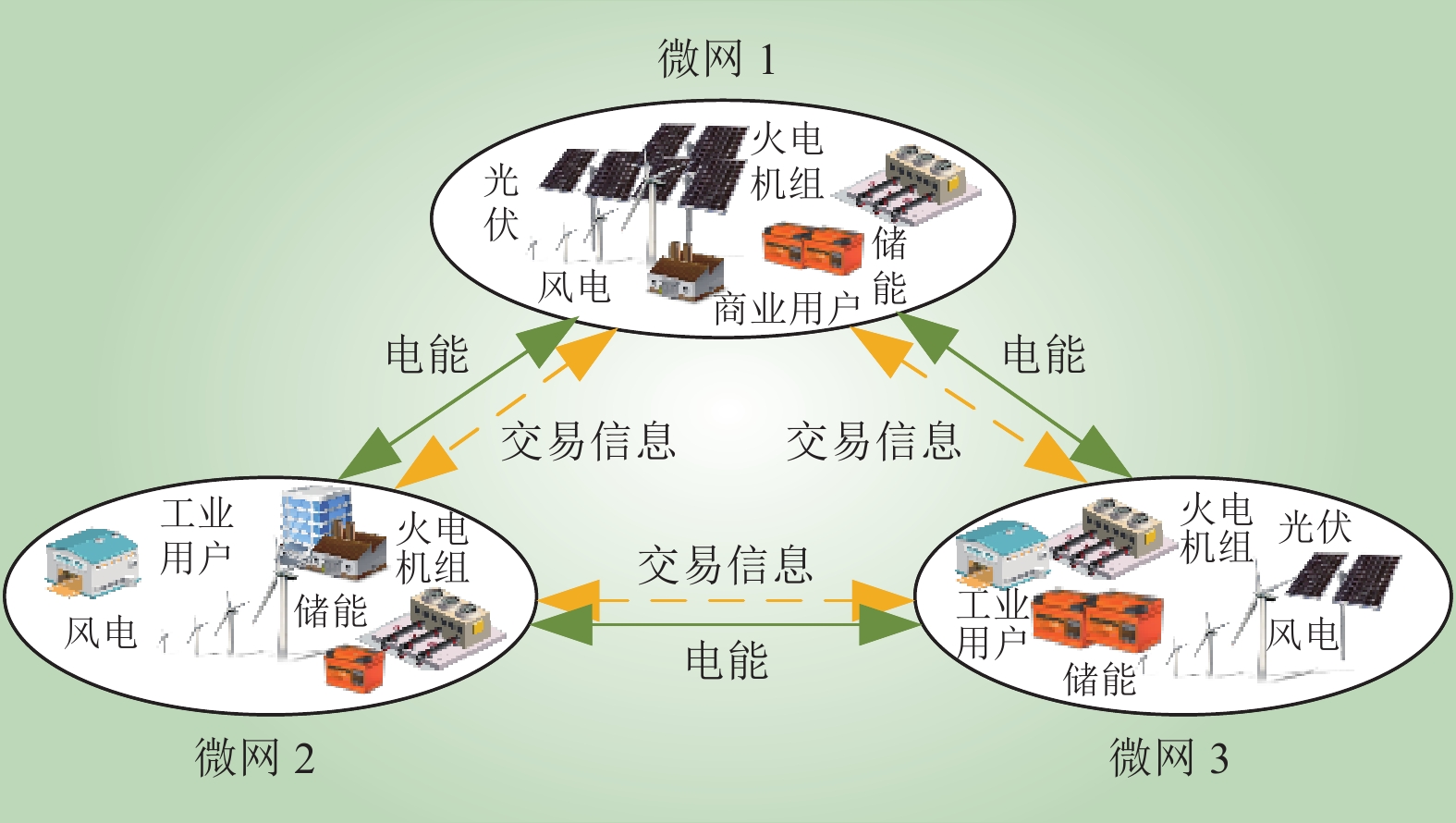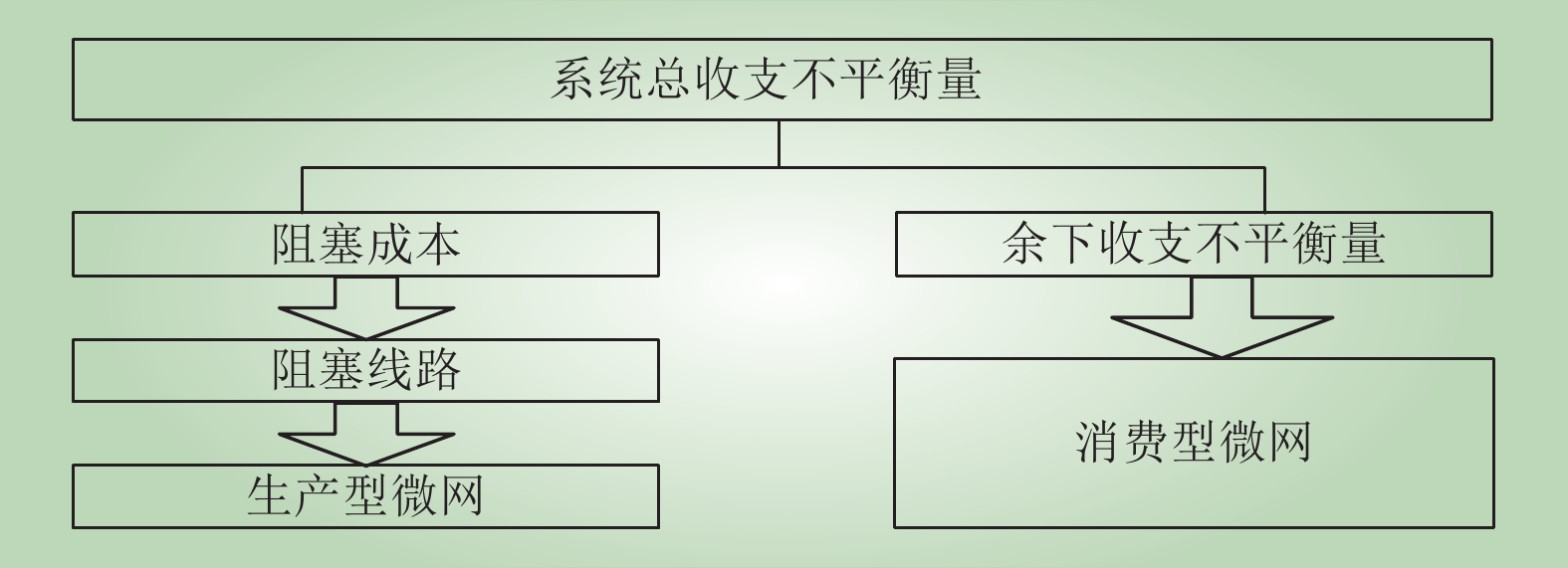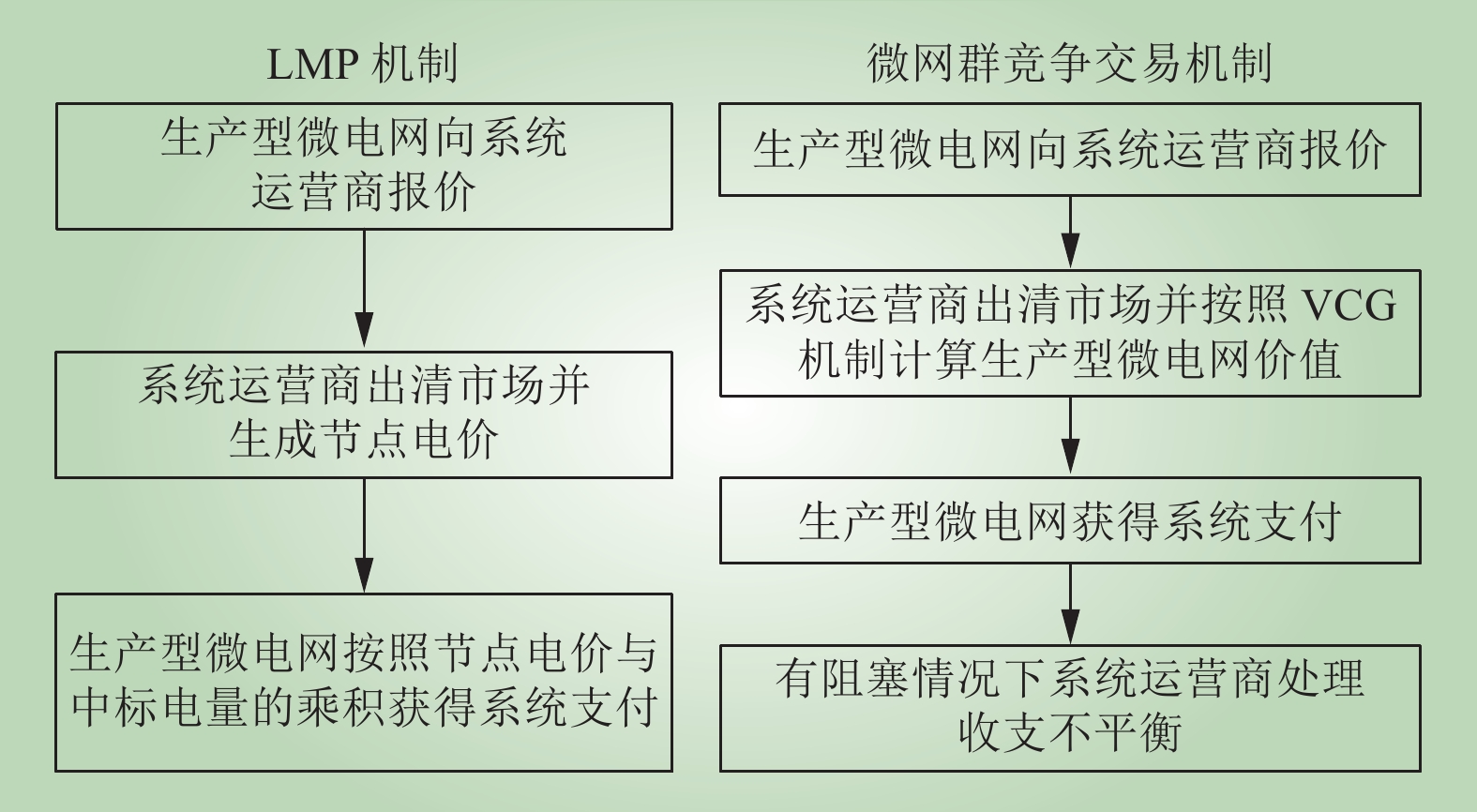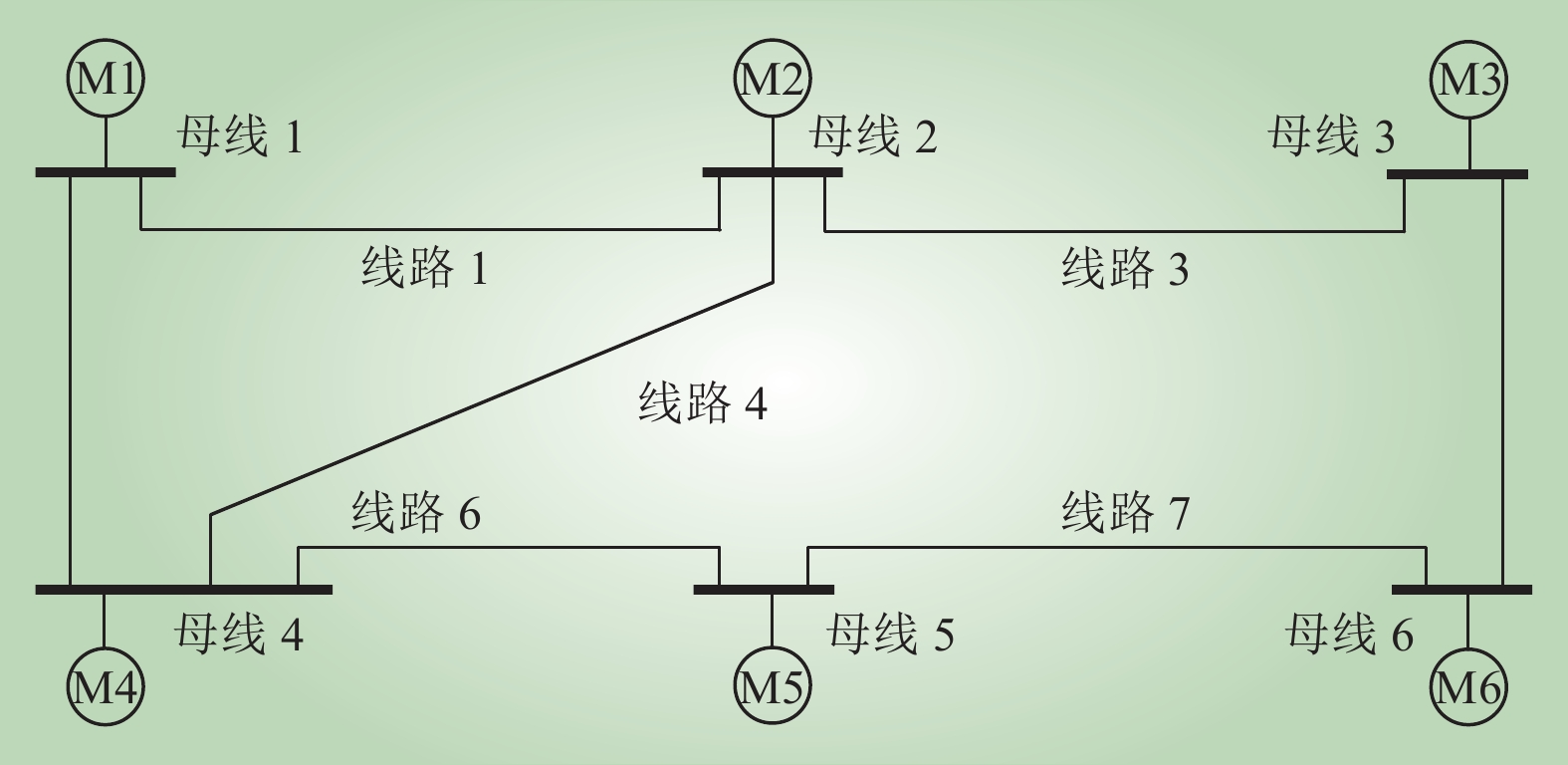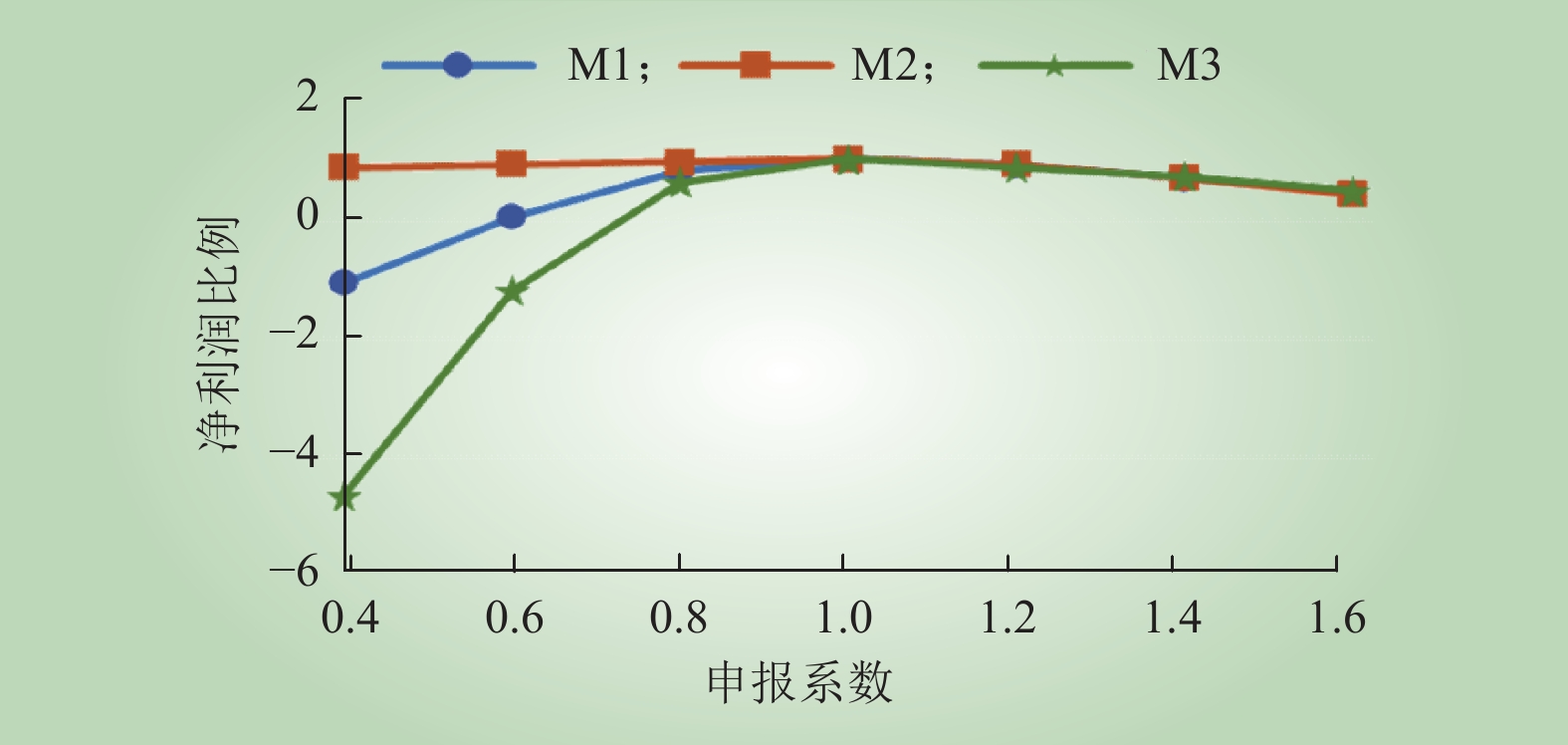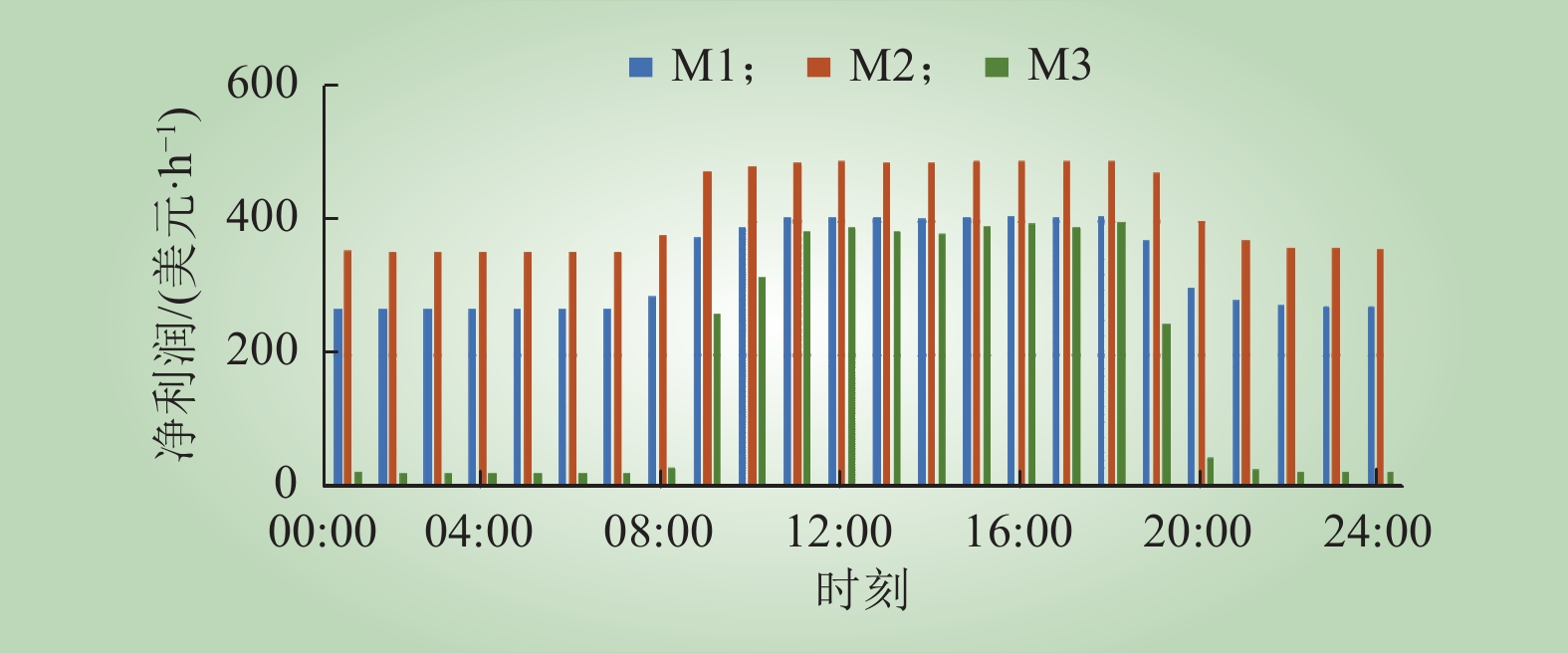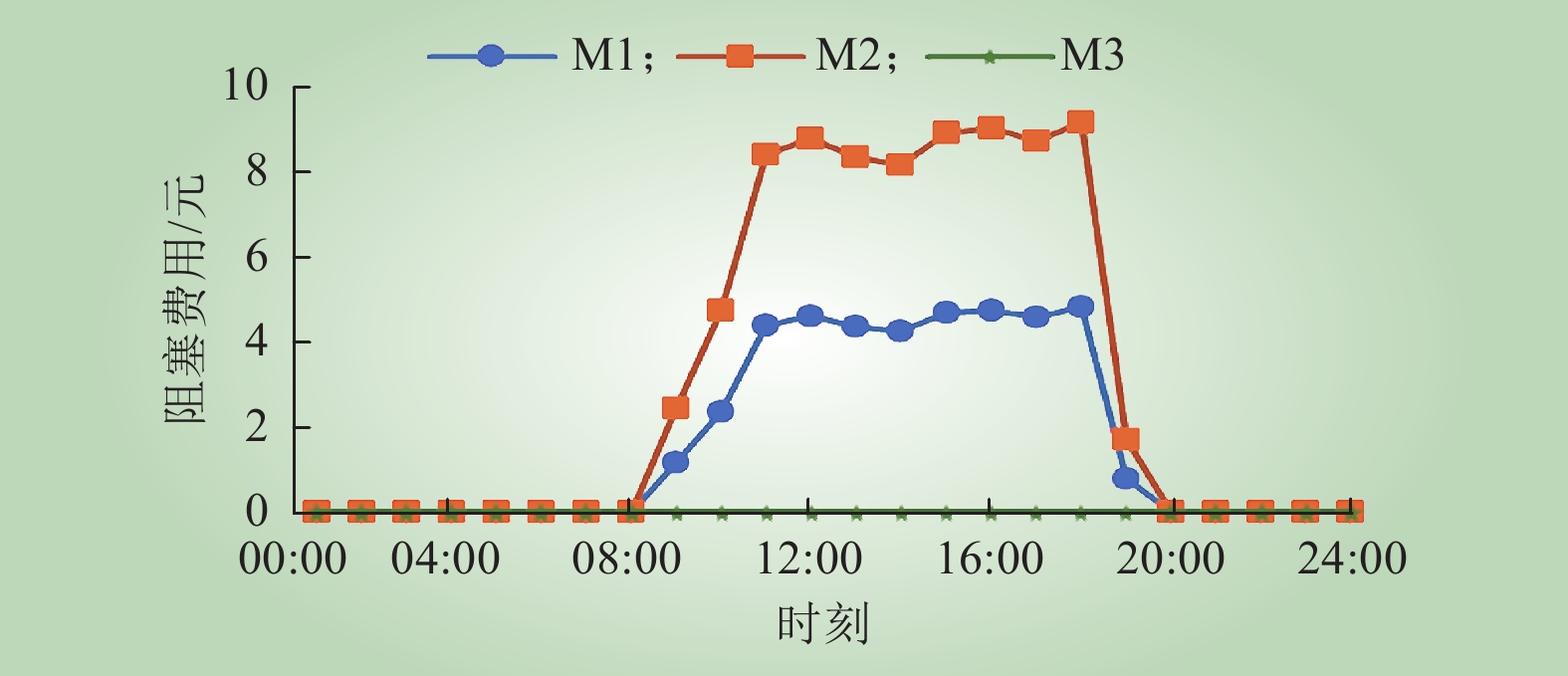| 1 |
贾宏刚, 王主丁, 岳园园, 等. 微电网调度模型的寻优性能与求解效率改进优化[J]. 中国电力, 2023, 56 (6): 107- 113, 131.
|
|
JIA Honggang, WANG Zhuding, YUE Yuanyuan, et al. Optimization performance and efficiency improvement of microgrid scheduling model[J]. Electric Power, 2023, 56 (6): 107- 113, 131.
|
| 2 |
白佩琳, 雷霞, 何建平. 多微电网系统的竞价机制设计[J]. 现代电力, 2017, 34 (6): 22- 27.
DOI
|
|
BAI Peilin, LEI Xia, HE Jianping. Design of bidding mechanism for multiple microgrids[J]. Modern Electric Power, 2017, 34 (6): 22- 27.
DOI
|
| 3 |
赵敏, 沈沉, 刘锋, 等. 基于博弈论的多微电网系统交易模式研究[J]. 中国电机工程学报, 2015, 35 (4): 848- 857.
|
|
ZHAO Min, SHEN Chen, LIU Feng, et al. A game-theoretic approach to analyzing power trading possibilities in multi-microgrids[J]. Proceedings of the CSEE, 2015, 35 (4): 848- 857.
|
| 4 |
刘志坚, 刘瑞光, 梁宁, 等. 一种基于博弈论的多微网能源交易方法[J]. 电网技术, 2021, 45 (2): 587- 595.
|
|
LIU Zhijian, LIU Ruiguang, LIANG Ning, et al. Energy trading method of multi-microgrids based on game theory[J]. Power System Technology, 2021, 45 (2): 587- 595.
|
| 5 |
刘鹏, 崔雪. 双碳背景下考虑市场份额偏好的发电侧市场均衡分析[J]. 电力科学与技术学报, 2023, 38 (2): 9- 17, 39.
|
|
LIU Peng, CUI Xue. Equilibrium analysis of power generation market considering market share preference under carbon-neutral goal[J]. Journal of Electric Power Science and Technology, 2023, 38 (2): 9- 17, 39.
|
| 6 |
邓莉荣, 孙宏斌, 陈润泽, 等. 面向能源互联网的热电联供系统节点能价研究[J]. 电网技术, 2016, 40 (11): 3375- 3382.
|
|
DENG Lirong, SUN Hongbin, CHEN Runze, et al. Research on nodal energy price of combined heat and power system for energy Internet[J]. Power System Technology, 2016, 40 (11): 3375- 3382.
|
| 7 |
阳婷婷, 李晓刚, 邹斌, 等. 促进灵活性资源的辅助服务市场分析[J]. 电力系统保护与控制, 2023, 51 (7): 73- 83.
|
|
YANG Tingting, LI Xiaogang, ZOU Bin, et al. Market analysis of an ancillary service to promote flexible resources[J]. Power System Protection and Control, 2023, 51 (7): 73- 83.
|
| 8 |
曹旭东, 姜业宇, 李赛龙, 等. 输配协同下的输配能量市场双层出清模式[J]. 东北电力大学学报, 2023, 43 (6): 42- 50.
|
|
CAO Xudong, JIANG Yeyu, LI Sailong, et al. Two layer market clearing model of electric energy transaction considering distribution and transmission system coordination[J]. Journal of Northeast Electric Power University, 2023, 43 (6): 42- 50.
|
| 9 |
李英量, 周丽雯, 王德明, 等. 计及用户分级的虚拟电厂经济调度[J]. 电力系统保护与控制, 2022, 50 (16): 121- 130.
|
|
LI Yingliang, ZHOU Liwen, WANG Deming, et al. Virtual power plant economic dispatching considering user classification[J]. Power System Protection and Control, 2022, 50 (16): 121- 130.
|
| 10 |
谢青洋, 应黎明, 祝勇刚. 基于经济机制设计理论的电力市场竞争机制设计[J]. 中国电机工程学报, 2014, 34 (10): 1709- 1716.
|
|
XIE Qingyang, YING Liming, ZHU Yonggang. Competitive power market mechanism design based on the designing economic mechanisms theory[J]. Proceedings of the CSEE, 2014, 34 (10): 1709- 1716.
|
| 11 |
杨强, 蔡华祥, 严明辉, 等. 基于激励相容与深度博弈的云南电力市场机制设计及应用[J]. 电力系统自动化, 2017, 41 (24): 27- 34.
|
|
YANG Qiang, CAI Huaxiang, YAN Minghui, et al. Design and application of electricity market mechanism for Yunnan based on theory of incentive compatibility and game in depth[J]. Automation of Electric Power Systems, 2017, 41 (24): 27- 34.
|
| 12 |
XU Y J, LOW S H. An efficient and incentive compatible mechanism for wholesale electricity markets[J]. IEEE Transactions on Smart Grid, 2017, 8 (1): 128- 138.
DOI
|
| 13 |
王剑晓, 钟海旺, 夏清, 等. 基于价值公平分配的电力市场竞争机制设计[J]. 电力系统自动化, 2019, 43 (2): 7- 17.
|
|
WANG Jianxiao, ZHONG Haiwang, XIA Qing, et al. Competitive mechanism design in electricity market based on fair benefit allocation[J]. Automation of Electric Power Systems, 2019, 43 (2): 7- 17.
|
| 14 |
郝培良. 考虑激励相容的风电市场价格机制设计[D]. 兰州: 兰州理工大学, 2021.
|
|
HAO Peiliang. Price mechanism design of high proportion wind power market considering incentive compatibility[D]. Lanzhou: Lanzhou University of Technology, 2021.
|
| 15 |
安麒, 王剑晓, 武昭原, 等. 高比例可再生能源渗透下的电力市场价值分配机制设计[J]. 电力系统自动化, 2022, 46 (7): 13- 22.
|
|
AN Qi, WANG Jianxiao, WU Zhaoyuan, et al. Benefit allocation mechanism design of electricity markets with penetration of high proportion of renewable energy[J]. Automation of Electric Power Systems, 2022, 46 (7): 13- 22.
|
| 16 |
汪红波, 邵立政, 夏清, 等. 考虑交流可行性校验的现货市场全环节建模及修正策略[J]. 中国电力, 2022, 55 (1): 142- 150.
|
|
WANG Hongbo, SHAO Lizheng, XIA Qing, et al. Full process modeling and correction strategies for electricity spot market considering AC feasibility check[J]. Electric Power, 2022, 55 (1): 142- 150.
|
| 17 |
肖宏飞, 李卫东. 基于潮流变化量的解析阻塞成本分配[J]. 中国电机工程学报, 2007, 27 (4): 72- 78.
|
|
XIAO Hongfei, LI Weidong. Fast allocation of congestion relief cost based on flow changes in congested branches[J]. Proceedings of the CSEE, 2007, 27 (4): 72- 78.
|
| 18 |
肖宏飞, 李卫东. 联营交易模式下的阻塞成本分摊[J]. 电网技术, 2009, 33 (9): 84- 89.
|
|
XIAO Hongfei, LI Weidong. Allocation for congestion cost in a pool based model[J]. Power System Technology, 2009, 33 (9): 84- 89.
|
| 19 |
王玉萍, 朱刚毅, 黎洁, 等. 基于潮流贡献率的联营市场阻塞成本分摊方法[J]. 电气自动化, 2018, 40 (3): 85- 87.
|
|
WANG Yuping, ZHU Gangyi, LI Jie, et al. Congestion cost allocation based on power flow contribution index in power pool market[J]. Electrical Automation, 2018, 40 (3): 85- 87.
|
| 20 |
康慨, 邓少平, 张超, 等. 考虑联络线功率稳定的微电网鲁棒经济调度模型[J]. 中国电力, 2019, 52 (6): 60- 67.
|
|
KANG Kai, DENG Shaoping, ZHANG Chao, et al. Robust economic dispatch model of interconnected microgrid considering tie line power stability[J]. Electric Power, 2019, 52 (6): 60- 67.
|
| 21 |
王建元, 李南南. 基于一致性算法的直流微电网分布式储能系统能量控制策略[J]. 东北电力大学学报, 2023, 43 (2): 73- 81.
|
|
WANG Jianyuan, LI Nannan. Energy control strategy of DC microgrid distributed energy storage system based on consensus algorithm[J]. Journal of Northeast Electric Power University, 2023, 43 (2): 73- 81.
|
| 22 |
陈荃, 张丹宏, 郑淇源, 等. 电-碳-绿证市场耦合下发电商报价与出清双层优化[J]. 南方电网技术, 2024, 18 (1): 121- 133.
|
|
CHEN Quan, ZHANG Danhong, ZHENG Qiyuan, et al. Bi-level optimization strategy for biddings and clearing of power suppliers under the coupling of electricity, carbon, and green certificate market[J]. Southern Power System Technology, 2024, 18 (1): 121- 133.
|
| 23 |
黄大为, 李赛龙, 孔令国. 计及中长期合同电量分解与风电报价的日前市场出清模型研究[J]. 东北电力大学学报, 2023, 43 (4): 45- 56.
|
|
HUANG Dawei, LI Sailong, KONG Lingguo. Research on day-ahead electricity market clearing model considering medium and long-term contracts decomposition and wind power producer bidding[J]. Journal of Northeast Electric Power University, 2023, 43 (4): 45- 56.
|
| 24 |
崔杨, 安宁, 付小标, 等. 面向高比例新能源电力系统调峰需求的储能容量配置方法综述[J]. 东北电力大学学报, 2023, 43 (1): 1- 8.
|
|
CUI Yang, AN Ning, FU Xiaobiao, et al. Overview of energy storage capacity allocation methods for high-proportion new energy power system peak shaving demand[J]. Journal of Northeast Electric Power University, 2023, 43 (1): 1- 8.
|
| 25 |
杨韵, 江昕玥, 段秦尉, 等. 新型电力系统下的天然气市场与电力市场协调机制探讨[J]. 南方电网技术, 2024, 18 (2): 57- 66.
|
|
YANG Yun, JIANG Xinyue, DUAN Qinwei, et al. Discussion on coordination mechanism of natural gas market and power market under new power system[J]. Southern Power System Technology, 2024, 18 (2): 57- 66.
|
| 26 |
陈付雷, 方毛林, 汪辰晨, 等. 考虑风光出力相关性与条件风险价值的孤岛型微电网经济调度[J]. 智慧电力, 2023, 51 (12): 30- 37.
|
|
CHEN Fulei, FANG Maolin, WANG Chenchen, et al. Economic dispatching of islanded microgrid considering correlation between wind power and PV output and conditional value at risk[J]. Smart Power, 2023, 51 (12): 30- 37.
|
| 27 |
张栋顺, 全恒立, 谢桦, 等. 考虑碳交易机制与氢混天然气的园区综合能源系统调度策略[J]. 中国电力, 2024, 57 (2): 183- 193.
|
|
ZHANG Dongshun, QUAN Hengli, XIE Hua, et al. Dispatching strategy of park-level integrated energy system considering carbon trading mechanism and hydrogen blending natural gas[J]. Electric Power, 2024, 57 (2): 183- 193.
|
| 28 |
向航, 刘继春, 王杨. 计及制冷负荷柔性调节的微电网两阶段优化运行模型[J]. 智慧电力, 2023, 51 (7): 59- 66.
|
|
XIANG Hang, LIU Jichun, WANG Yang. Two-stage optimal operation model of micro-grid considering cooling load flexible regulation[J]. Smart Power, 2023, 51 (7): 59- 66.
|
| 29 |
赵梓潼, 顾兵. 需求响应下基于电动汽车负荷聚合商的充放电电价与时段研究[J]. 东北电力大学学报, 2023, 43 (6): 79- 86.
|
|
ZHAO Zitong, GU Bing. Research on charging and discharging price and time period basedon electric vehicle load aggregator under demand response[J]. Journal of Northeast Electric Power University, 2023, 43 (6): 79- 86.
|
| 30 |
王涛, 钟浩, 李世春, 等. 基于主从博弈的多微电网储能容量优化配置[J]. 智慧电力, 2023, 51 (1): 9- 15, 68.
|
|
WANG Tao, ZHONG Hao, LI Shichun, et al. Optimal allocation of energy storage capacity in multi-microgrid based on master-slave game[J]. Smart Power, 2023, 51 (1): 9- 15, 68.
|



